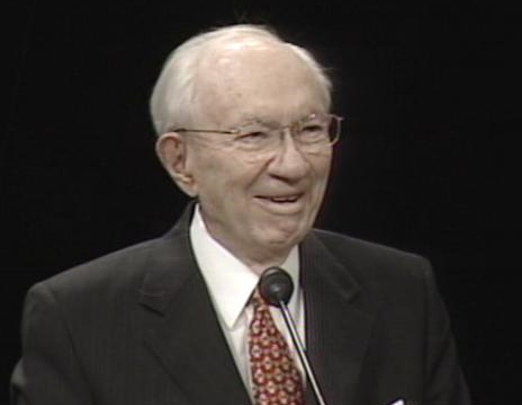Flexible view of church history
Dan Wotherspoon at Mormon Matters recently released a podcast on evaluating Mormon history with guests Lindsay Hansen Park, Brian Whitney, and Jon Grimes. I recommend listening to this discussion of Mormon history and some of the issues surrounding the CES Letter.
Dan Wotherspoon: We’re setting up ourselves to fail. Of course we’re in this dilemma.
Jon Grimes said ‘Yes absolutely. One of the proximate causes for a lot of the angst that they feel for history that they come across that is not what they expect it to be is a statement President Gordon B. Hinckley made…’

President Hinckley from talk in April 2004 called Loyalty. ‘Each of us has to face the matter—either the Church is true, or it is a fraud. There is no middle ground. It is the Church and kingdom of God, or it is nothing.’
Jon goes on: ‘Now this type of statement gets said in various arenas, such as politics. You’re either for us or against us, there is no middle ground. The intention of the speaker is to present a strong position. It is a strong but very brittle position. Like in construction you don’t use the most brittle iron and steel. It needs to have some give. It needs to have some sway. Otherwise an earthquake will tear the building down entirely. This statement is the wrong grade of steel, because the moment you find anything that seems more man than of God, you’ve already lost. This statement is setting up Mormons to fail. Claiming the impossible. And if the impossible is not reached, then you might as well just chuck the whole darn thing. We set us up with this binary black and white thinking to fail. You see this when people become disillusioned with the LDS church because of this binary mode in their approach to things that don’t fit in a binary paradigm.’
Jon’s statement and analogy to steel resonated with me, but I felt a little confusion. On one hand, what he says sounds very true and is what I have adopted as a philosophy. On the other hand, President Hinckley is a prophet I loved and do not want to oppose.
I went back and studied President Hinckley’s talk and thinking through this came up with a few points.
- I found it very interesting the title of the talk was ‘Loyalty’. Also, that all the analogies, comparisons, and doctrinal points he made in the talk were all, exclusively about the concept of loyalty and faithfulness. Rereading the entire talk and the statement that is extracted to support the binary truth view, it doesn’t read the way it is assumed when taken out of context.
- It’s also interesting that Jon Grimes mentioned in the podcast that usually when these words are used, they are talking about loyalty–who’s team will you choose us or theirs?
- Upon further analysis, the common interpretation of President Hinckley’s quote doesn’t make any sense. As Jon mentions, if you interpret that as a black and white statement, anything at all you can prove comes from man and not from God can prove the church is a fraud. What does that even mean anyway? Something coming from man and not from God? How do we think truth is revealed to man? When can the standard be relaxed? My son recently used his priesthood to pray and ask for revelation to choose his counselors in the deacon’s quorum presidency. If that was a man made decision with no revelation, does that prove the church is a fraud?
I think in this context, we can take President Hinckley’s quote on the church to be talking about loyalty and faith. My last blog post was on the difference between faith and belief in the context of the often discussed topic ‘faith is a choice’.
Anti-Mormons would like to force us into that false dichotomy. It’s very easy to pick away at some of the historical origins and ‘prove the church is false’, like many think was done with the CES Letter. Not so fast my friend. But some Mormons mistakenly buy into that, striking back with the response ‘of course it’s all from God.’ But history is messy. Man’s dealing with God throughout time is messy. Historical origins of religion are nearly always messy. The truth is not in the factualness of the historical origins. The truth of the LDS church is in its current state. The church facilitates its members to connect with and worship God, and fellowship with the body of Christ in an enriching and abundant life. That is why the church is true.

Skyscrapers built with brittle and inflexible steel would topple in an earthquake and even heavy winds. They are built with a grade of steel that has bend in it. The bend allows the building to be flexible in the face of opposing forces.
“And now, … remember, remember that it is upon the rock of our Redeemer (and flexible grade steel!), who is Christ, the Son of God, that ye must build your foundation; that when the devil shall send forth his mighty winds, yea, his shafts in the whirlwind, yea, when all his hail and his mighty storm shall beat upon you, it shall have no power over you to drag you down … because of the rock upon which ye are built (and the flexible grade steel–so that you may sway and flow with the wind but maintain your firm position), which is a sure foundation, a foundation whereon if men build they cannot fall”
Let us stand firm in our faith in the face of difficult historical information, by adopting a more mature view of our history.
Jeffnyd
Randall, thanks for sharing your post. I am all for accepting Mormonism as a source of mythic truth (which to me, seems to be the approach that Dan is endorsing), but your arguments don’t seem to fall in line with this approach. Assuming for the moment that we agree that Hinckley’s statement was not intended to be taken as literal (I actually strongly disagree), I don’t see how your nuanced interpretation of his words helps people to stay Mormon. Sure, human beings are infallible. Every member will concede that our leaders have made missteps in the past. That’s not the issue. The issue is that the Church’s foundational claims of origin – Book of Abraham, Angel Moroni, Book of Mormon, First Vision – have all been confronted with serious challenges. If these claims are false, there I think ‘fraud’ is a reasonable accusation. This is why you are seeing people leave the church, and it is why those who you call ‘anti-Mormons’ tend to question believers. The question of whether or not any golden plates actually existed is a binary one. They either did or they didn’t. The claim is either true or it is fraudulent.